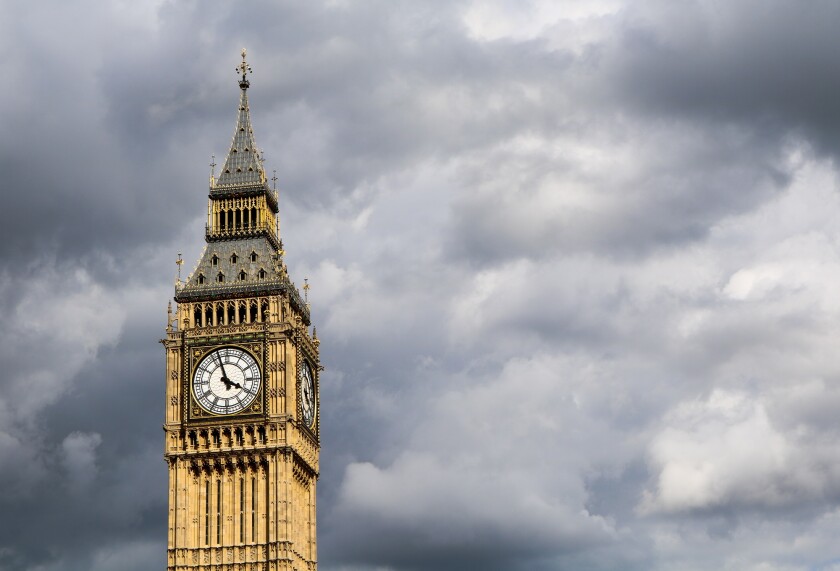Corporate tax is becoming a fault line in British politics with Conservative members of Parliament opposing Prime Minister Rishi Sunak’s more restrained approach to fiscal policy. It looks like the prime minister is in trouble with a large faction of his own party.
Former leaders Boris Johnson and Liz Truss are calling for the Sunak government to cancel its plan to increase corporate tax from 19% to 25% in April. A new body, the Conservative Growth Group (CGG), has been formed in Parliament to pressure the government on tax cuts.
Ranil Jayawardena, founder of the CGG, said yesterday, February 26: “Targeted tax cuts are a powerful tool to boost economic growth.
“We should look again at scrapping this tax hike on businesses at a time when we need them to succeed,” said the MP for North East Hampshire.
Worse still for Sunak, the CGG is not a lonely force in Parliament. It is aligned with the European Research Group and the Northern Research Group, both of which support the call for keeping the 19% corporate rate.
This means the Sunak government faces around 150 MPs who oppose the 25% rate. It’s possible that the government could see a significant rebellion in Parliament, but this is not just about tax policy. Nothing in politics happens in isolation.
At the same time, the UK government is trying to solve the problems of the Northern Ireland Protocol with a new deal with the EU. This is bound to inflame tensions with Eurosceptic MPs even more, despite Sunak’s strong support for Brexit.
Nevertheless, the UK is scheduled to raise corporate tax from 19% to 25% and Chancellor Jeremy Hunt shows no sign of backing down ahead of the March 15 budget.
Sunak and Hunt are hoping fiscal restraint will shore up the UK’s credibility with financial markets after the hubris of Liz Truss’s ‘mini-budget’ in September 2022. But they will face serious problems if they can’t maintain support in Parliament.
Chopping and changing
The CGG argues that 19% will help keep the UK competitive, bolster growth and create jobs, but the evidence for this is lacking. If 19% was such a guarantee of growth, the UK economy would not be stagnant already. It takes more than low tax rates to boost growth.
As for whether the UK will lose its competitive edge with 25%, the country would still have one of the lowest corporate rates in the developed world – including the lowest of the G7 nations – though it would be above the OECD average.
It’s also true that the UK corporate tax rate was higher than 25% not too long ago. Back in 2010, the headline rate was 28%. The coalition government reduced it from 28% to 19% in just six years and wanted to cut it to 15% by 2020.
Chancellor George Osborne secured a commitment to lower it to 17% before he left office in 2016. This rate change was stalled until 2019, when Prime Minister Johnson cancelled the plan. It was Johnson and Sunak who set the policy for 25% in motion.
The former prime minister also committed the UK to implementing the OECD’s proposed global minimum corporate tax rate. So it’s odd that Johnson is now one of many voices calling on Hunt to cancel this hike.
The UK government is still set to introduce a minimum effective corporate rate of 15% by 2025 and this will put a significant floor under tax planning. Never before have multinational companies faced such a limit on their tax affairs.
As a result, UK companies will face a higher effective rate and not just a higher headline level of corporate tax. But somehow the minimum corporate rate has not become a dividing line in Westminster.
It may be that this is part of Johnson’s comeback strategy rather than a demand to boost growth. If so, this won’t end even if Hunt pulls a u-turn on corporate tax in two weeks.











